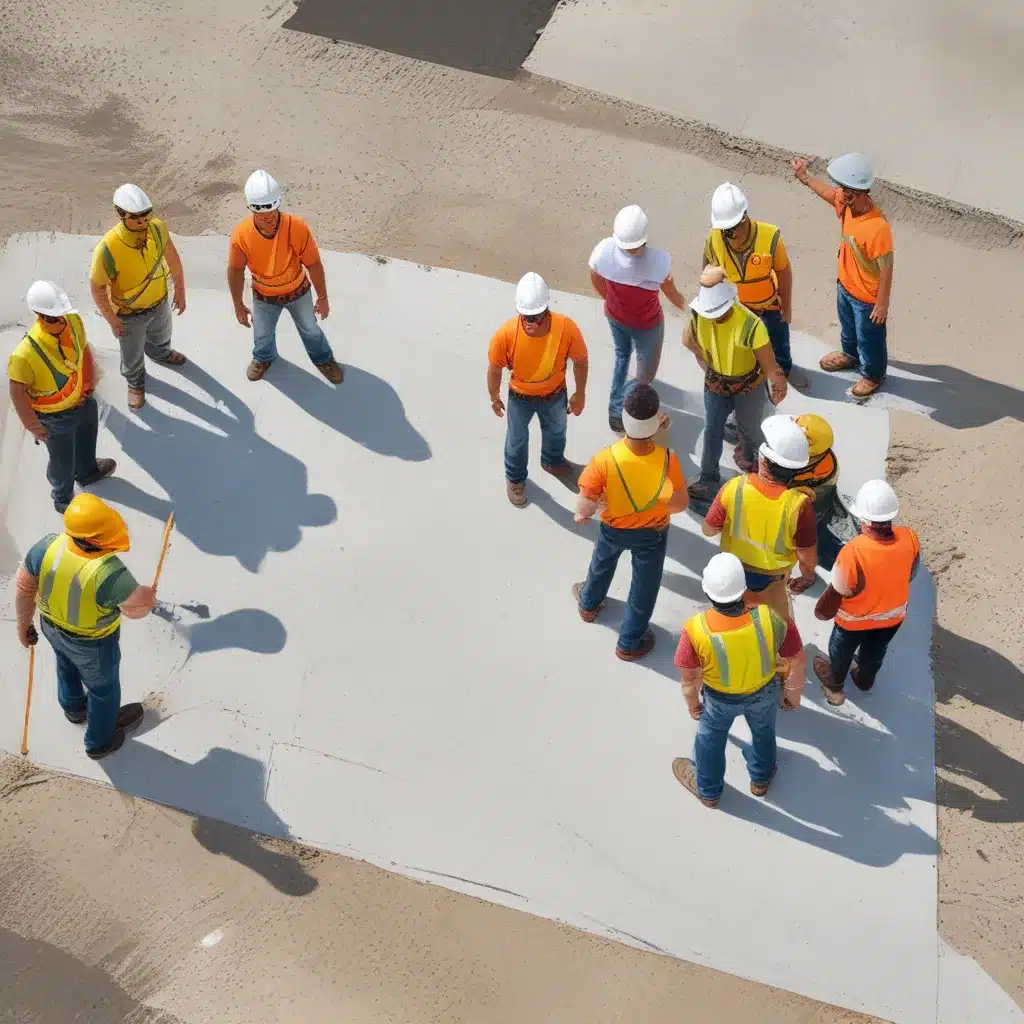
Embracing the Digital Transformation
Imagine a construction site where robots effortlessly wield welding tools, drones soar overhead capturing real-time data, and 3D-printed components seamlessly slot into place. This isn’t some far-fetched vision of the future – it’s the reality unfolding before us as the construction industry undergoes a remarkable transformation.
Gone are the days when construction projects were plagued by inefficiencies, communication breakdowns, and costly errors. Today, a wave of innovative technologies is sweeping through the industry, revolutionizing the way we approach project management. It’s an exhilarating time to be in the construction business, and those who embrace these changes are poised to reap the rewards.
Harnessing the Power of BIM
One of the game-changers in the construction industry is the advent of Building Information Modeling (BIM). This powerful software allows project stakeholders to collaborate on a detailed 3D model that encompasses every aspect of a structure, from the foundations to the roof. BIM has proven stunningly versatile, enabling architects, engineers, contractors, and subcontractors to work together seamlessly, identifying and resolving potential issues before a single shovel hits the ground.
By visualizing the entire project in a virtual environment, teams can catch clashes, optimize designs, and make informed decisions that save time and money. Gone are the days of poring over 2D blueprints, only to discover last-minute snags that derail the schedule and balloon the budget. With BIM, the guesswork is eliminated, and everyone involved can stay on the same page, literally and figuratively.
The Rise of Connected Construction
But BIM is just the beginning. The construction industry is now embracing the concept of “Connected Construction,” where technology integrates every aspect of the project lifecycle. Imagine a world where real-time data from the jobsite flows seamlessly into the cloud, accessible to all stakeholders with a few taps on their mobile devices.
Cloud computing has been a game-changer, allowing project teams to store and access data from anywhere, at any time. No longer are they beholden to the limitations of on-site hardware or restricted by physical distance. With the power of the cloud, collaboration and communication have never been easier.
Prefabrication and Industrialized Construction
Another area where technology is transforming the construction industry is in the realm of prefabrication and industrialized construction. The days of painstakingly assembling components on-site, exposed to the elements, are giving way to a more efficient and precise approach.
Prefabrication has hugely increased the efficiency of the construction process. Components like concrete panels, timber frames, and even entire building modules are now fabricated in controlled factory environments, arriving on-site ready to be seamlessly integrated. This not only saves time and reduces waste, but it also ensures a higher level of quality and consistency.
Sustainable Solutions for a Greener Future
As the world becomes increasingly conscious of its environmental impact, the construction industry is also embracing sustainable solutions. Gone are the days when concrete and steel were the go-to materials for every project. Today, innovative building materials like cross-laminated timber, recycled rubber, and hempcrete are gaining traction, offering a more eco-friendly alternative.
These sustainable materials not only reduce the carbon footprint of construction projects, but they can also improve energy efficiency and even increase property values. It’s a win-win-win scenario for the industry, the environment, and the end-users.
Revolutionizing Safety with Advanced PPE
While the construction industry’s technological advancements may grab the headlines, it’s important not to overlook the crucial role of personal protective equipment (PPE) in revolutionizing the sector. Regulations and legislation around PPE have played a significant role in improving safety on construction sites, leading to a dramatic reduction in workplace injuries and fatalities.
But the innovation in PPE doesn’t stop there. The future may hold even more advanced solutions, such as exoskeletons and other design improvements that enhance worker safety and productivity. As the construction industry continues to prioritize the well-being of its workforce, these advancements will undoubtedly remain a key focus.
Driving Efficiency with Robotic Total Stations
Another technology that has transformed the construction industry is the Robotic Total Station (RTS). This electronic theodolite, integrated with distance measurement capabilities, has revolutionized the way project teams lay out building services on-site.
Gone are the days of the tedious, error-prone manual process involving tape measures, spirit levels, and theodolites. With an RTS, a single person can efficiently and accurately complete the layout, using a tablet and the relevant software. This not only saves time and reduces the risk of costly mistakes, but it also streamlines the overall construction process.
The Power of Digital Twins and As-Builts
As the construction industry continues to embrace digital transformation, the concept of digital twins and digital as-builts is gaining traction. These virtual representations of physical assets provide real-time data throughout the construction and maintenance phases, empowering project teams to make informed decisions and predict potential issues before they arise.
Digital twins and as-builts are proving to be an essential part of the digital transformation, allowing owners, contractors, and subcontractors to collaborate seamlessly and access critical information at their fingertips. As these technologies continue to evolve, we can expect even more innovative applications that will further streamline the construction process.
The Future is Bright, and It’s Concrete
The construction industry is no longer the domain of manual labor and outdated practices. Today, it’s a hive of technological innovation, where the digital and physical worlds converge to create structures that are not only more efficient and sustainable but also safer and more cost-effective.
As a concrete services and solutions company, we at Concrete Townsville are thrilled to be at the forefront of this transformation. We embrace the latest advancements in materials, software, and automation, helping our clients maximize the benefits of these game-changing technologies.
The future of construction is here, and it’s made of concrete – a material that has stood the test of time, but now with a digital twist. So, let’s raise a (metaphorical) glass to the innovations that are revolutionizing project management in the construction industry. The possibilities are endless, and the only limit is our imagination.

